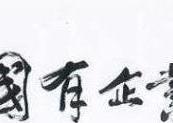The Dark Side of Performance-Based Elimination in Chinese State-Owned Enterprises
An analysis of the controversial ‘last-place elimination system’ in Chinese state-owned enterprises reveals how it often leads to the departure of hardworking employees while protecting those with connections.

The implementation of performance-based elimination systems in China’s state-owned enterprises (SOEs) has become a contentious topic that reveals deeper systemic issues within these organizations. Through multiple firsthand accounts from employees, a disturbing pattern emerges that challenges the system’s stated meritocratic goals.
At its core, the elimination system appears designed to identify and remove underperforming employees. However, in practice, it often targets dedicated workers while protecting those with political connections or family ties to leadership. One employee’s story particularly illustrates this dynamic - despite consistently exceeding performance targets by 120% and taking on additional responsibilities, they were demoted after a casual comment was reported to leadership by colleagues seeking to advance their own positions.
The perverse incentives created by this system have led to several troubling outcomes:
- Skilled workers who focus solely on their jobs rather than office politics become vulnerable
- Employees with connections are often shielded from evaluation, sometimes not even showing up for work while collecting multiple salaries
- Department performance suffers as experienced workers are replaced by less qualified but better-connected individuals
- A culture of fear develops, destroying motivation and innovation
More concerning are reports of “ghost employees” - individuals who receive salaries and benefits from multiple SOEs without ever showing up for work, protected by family connections to leadership. This highlights how the elimination system can be weaponized for personal gain rather than organizational improvement.
The broader economic impact is significant. As talented employees are pushed out of SOEs, many end up contributing their skills to private enterprises or starting their own businesses. While this may benefit China’s private sector development, it represents a significant brain drain from state organizations.
Historical parallels suggest this approach is fundamentally flawed. Previous attempts at similar systems, both in China and globally, indicate that targeting rank-and-file employees while protecting management rarely improves organizational performance. True reform requires accountability at leadership levels first.
The human cost is profound. Many displaced workers face significant challenges rebuilding their careers, particularly older employees with decades of specialized experience in state industries. This creates ripple effects through families and communities that relied on the stability these positions once provided.
Perhaps most tragically, this system appears to be achieving the opposite of its stated goals - rather than improving efficiency and performance, it is often driving out the most dedicated and skilled workers while entrenching a culture of political maneuvering over professional competence.
For China’s SOEs to truly reform and modernize, they may need to fundamentally rethink this approach. The evidence suggests that lasting positive change requires focusing first on leadership accountability and merit-based evaluation at all levels, rather than using elimination systems that can be easily manipulated to protect the connected while punishing the productive.